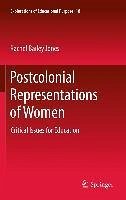
Teaching About Hegemony (eBook, PDF)
Race, Class and Democracy in the 21st Century
Versandkostenfrei!
Sofort per Download lieferbar
72,95 €
inkl. MwSt.
Weitere Ausgaben:

PAYBACK Punkte
36 °P sammeln!
Political progressives in Canada and the United States are deeply concerned by the manner in which their countries treat their poor. They are dismayed at the dismantling of the social welfare state, the weakening of public education systems and the grotesque and ever-growing inequality of wealth. To remedy this problem, citizens need to be more aware of how political ideology influences attitudes and actions, and they need to better comprehend the effects of hegemonic discourses in the corporate media and school curriculum. This book informs educators how to develop context-specific pedagogy t...
Political progressives in Canada and the United States are deeply concerned by the manner in which their countries treat their poor. They are dismayed at the dismantling of the social welfare state, the weakening of public education systems and the grotesque and ever-growing inequality of wealth. To remedy this problem, citizens need to be more aware of how political ideology influences attitudes and actions, and they need to better comprehend the effects of hegemonic discourses in the corporate media and school curriculum. This book informs educators how to develop context-specific pedagogy that will help achieve a more enlightened citizenry and, as a result, a stronger democracy.
Teaching about Hegemony: Race, Class and Democracy in the 21st Century promotes a progressive agenda for teaching that is rooted in critical pedagogy, it explains why ideological critique is necessary in raising political consciousness, it deconstructs white, middle-class hegemony in the formal school curriculum, and it examines corporate media and school curriculum as hegemonic devices. It also covers recent theory and research about race, class and democracy and how best to teach about these topics. Combining theory and sociological research with pedagogical approaches and classroom narratives, this book is fundamental for progressive educators interested in developing a politically conscious, progressive and active citizenry hungry for a stronger civil society.
Teaching about Hegemony: Race, Class and Democracy in the 21st Century promotes a progressive agenda for teaching that is rooted in critical pedagogy, it explains why ideological critique is necessary in raising political consciousness, it deconstructs white, middle-class hegemony in the formal school curriculum, and it examines corporate media and school curriculum as hegemonic devices. It also covers recent theory and research about race, class and democracy and how best to teach about these topics. Combining theory and sociological research with pedagogical approaches and classroom narratives, this book is fundamental for progressive educators interested in developing a politically conscious, progressive and active citizenry hungry for a stronger civil society.
Dieser Download kann aus rechtlichen Gründen nur mit Rechnungsadresse in A, B, BG, CY, CZ, D, DK, EW, E, FIN, F, GR, HR, H, IRL, I, LT, L, LR, M, NL, PL, P, R, S, SLO, SK ausgeliefert werden.













